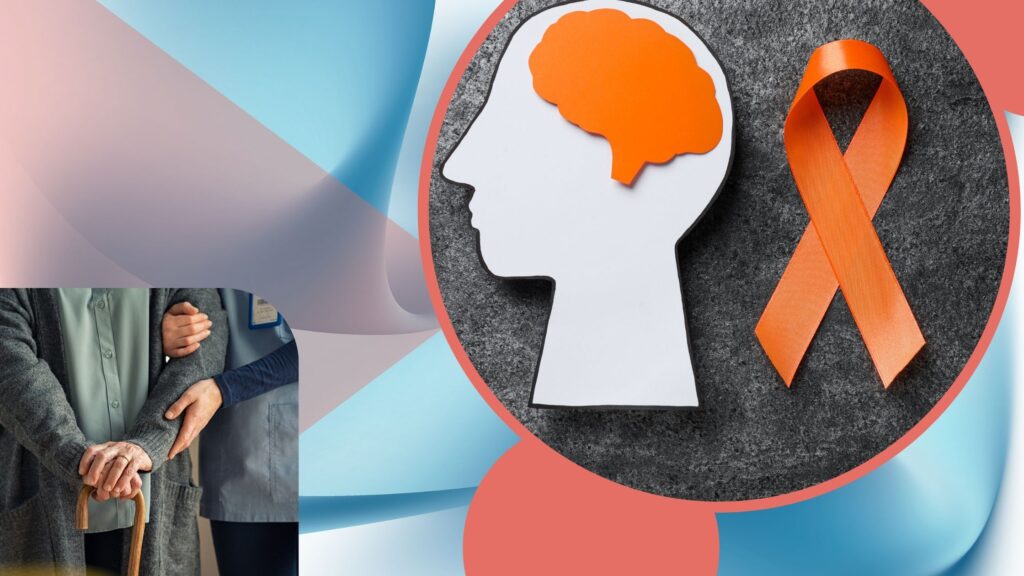Memory loss is unsettling at best and frightening at worst. For both patients and their loved ones, a loss of memory brings up questions regarding care, health, long-term conditions, underlying diseases, and more. Is it normal aging, stress, or an underlying condition?
While most people will assume dementia or Alzhiermer’s is responsible for memory loss, especially in old age, other neurological conditions have side effects of memory loss and other cognitive impairment that may be the cause.
If you or a loved one is experiencing memory loss, at any age, it is important to speak with an experienced neurologist. Memory loss can be sudden or have a gradual onset. In either case, a neurologist can help. With the right diagnosis and proper support, you and your family can manage the memory loss, treat the underlying condition, and make a long-term care plan.
See what neurological conditions may cause memory loss – and what to do about it. You are not alone. Support is available. Speak with a neurologist in Maryland today if you are worried about memory loss.
Note: Content on neuromedpa.com is not doctor’s advice and should not be taken as such. Always contact your primary care doctor for medical services, diagnosis, treatment, and more.

8 Neurological Conditions That May Cause Memory Loss
1. Alzheimer’s Disease
This is the most common cause of memory loss and one that most patients or loved ones are familiar hearing about. Alzheimer’s is a progressive brain disorder that damages memory and cognitive abilities over time. It affects the brain’s ability to form and store new memories. It gradually damages nerve cells, starting in the hippocampus, where the brain manages memory and learning.
Diagnosis
Alzheimer’s is diagnosed through cognitive testing administered by an experienced neurologist and their staff. You may be asked to take a mental examination, undergo brain scans like an MRI, and submit to a blood test to rule out other causes. Early diagnosis is critical to help plan care and maintain independence longer.
Symptoms
- Short-term memory loss
- Trouble recognizing familiar faces or places
- Difficulty completing everyday tasks
- Personality or mood changes
Treatment
Alzheimer’s Disease currently has no cure. However, early detection and intervention can aid in slowing down the progression of the disease. Pursuing a confirmed diagnosis can provide recommended medications, cognitive therapy and memory exercises, and guidelines for caregivers, daily routines, and safety planning.
2. Vascular Dementia
There are several types of dementia that can be responsible for memory loss. Vascular dementia is caused by reduced blood flow to the brain. This may have been caused by several strokes or small vessel disease. When the brain cells don’t get enough oxygen, they can die, leading to confusion, poor judgment, and memory gaps.
Diagnosis
You will be asked to undergo an MRI or CT scan to detect stroke damage or reduced blood flow. Follow-up neurological exams will assess reflexes and balance. Keeping heart health in check also protects brain health, so regular follow-ups are essential.
Symptoms
- Sudden or stepwise decline in memory after a stroke
- Trouble focusing or problem-solving
- Confusion and emotional instability
Treatment
Treating memory loss from vascular dementia is focused on lifestyle management. Patients are recommended to manage blood pressure, cholesterol, and diabetes, as well as undergo lifestyle changes that may include exercise, a healthy diet, and quitting smoking.

3. Lewy Body Dementia
Lewy Body Dementia is caused by abnormal protein deposits in the brain that affect memory, movement, and thinking. It can cause memory loss, vivid hallucinations, and fluctuating alertness or attention.
Diagnosis
Patients will be asked to undergo neurological and cognitive exams, possibly including sleep studies to detect REM sleep behavior disorder. Brain scans will be recommended to rule out other types of dementia.
Symptoms
- Fluctuating alertness or confusion
- Visual hallucinations
- Movement issues similar to Parkinson’s disease
- Disrupted sleep
Treatment
Lewy Body Dementia is treated with medications for memory and movement symptoms. You will discuss sleep management strategies and physical and occupational therapy. Symptoms may change from day to day, so support from a specialist is critical to preserving quality of life and supporting loved ones.
4. Frontotemporal Dementia (FTD)
Frontotemporal Dementia affects the frontal and temporal lobes of the brain—the areas responsible for personality, behavior, and language. Patients may experience personality changes and trouble with decision-making before memory loss becomes noticeable. FTD often affects younger adults (40s–60s).
Diagnosis
An MRI or PET scan will be ordered to look for frontal or temporal lobe shrinkage. Your neurologist will also conduct neuropsychological testing for language and executive function.
Symptoms
- Personality or social behavior changes
- Trouble with speech or word-finding
- Impulsive or inappropriate behavior
Treatment
While there is no cure for FTD, medications can help manage mood and behavioral issues. Speech and occupational therapy will assist with function and quality of life. Structured routines and supervision are highly recommended. Support groups can help families navigate rapid personality changes.

5. Parkinson’s Disease
Although Parkinson’s Disease is known for movement problems, many people also develop memory and cognitive issues (sometimes progressing to Parkinson’s dementia) due to changes in brain chemistry and structure. Parkinson’s can impact thinking and memory as it progresses. It is highly encouraged to seek treatment and a diagnosis when the first sign of tremors and movement problems are noticed
Diagnosis
Your doctor will want to refer you to an experienced neurologist for a neurological evaluation by a movement disorder specialist. You may also be asked to undergo imaging (DaTscan) to confirm dopamine loss.
Symptoms
- Tremors, stiffness, and slow movements
- Trouble concentrating or multitasking
- Mild memory loss that may worsen over time
Treatment
There are currently Parkinson specific medications to help manage the disease. Physical therapy and brain exercises, plus cognitive stimulation, can help strengthen memory and other cognitive impairments. Maintaining physical activity and social interaction helps preserve quality of life for many patients.
6. Multiple Sclerosis (MS)
Multiple Sclerosis is an autoimmune disease that damages nerve fibers and disrupts brain communication. MS specifically damages the protective coating (myelin) around nerves, disrupting communication between the brain and the rest of the body. This can cause “brain fog,” memory lapses, and difficulty processing information. MS most affects women, between the ages of 20 and 50.
Diagnosis
An MRI scan will be ordered to detect lesions in the brain or spinal cord. A Lumbar puncture wil be issued for abnormal immune markers.
Symptoms
- “Brain fog” or forgetfulness
- Difficulty learning new information
- Fatigue, weakness, or vision problems
Treatment
Treatment for MS is ongoing, requiring a supportive staff of experienced neurologists. There are disease-modifying therapies to reduce relapses, memory training and stress management, plus monitoring for a healthy lifestyle and rest. Memory changes may fluctuate with fatigue or relapses — regular follow-ups are key to monitoring MS.
Additional Resource: Caring for a Loved One with MS

7. Epilepsy
Epilepsy is a neurological disorder causing recurrent seizures that can affect memory centers in the brain. These seizures interfere with normal brain activity, and frequent or severe seizures may cause long-term memory impairment, particularly if the temporal lobes (key memory areas) are affected. While over half of epilepsy patients are diagnosed as a child, epilepsy can occur later in life.
Diagnosis
At any age, the testing for epilepsy includes an EEG to measure brain electrical activity and an MRI to identify structural causes.
Symptoms
- Memory gaps after seizures
- Confusion or difficulty recalling words
- Fatigue and brain fog post-seizure
Treatment
Anti-seizure medications are prescribed to help reduce seizures. Memory exercises and rest after seizures are recommended to help maintain cognitive function. In severe cases, surgery may be advised. Tracking seizures and noting memory changes helps doctors adjust treatment.
8. Normal Pressure Hydrocephalus (NPH)
NPH is the condition of excess fluid buildup in the brain’s ventricles that causes pressure and damage. This condition occurs when excess cerebrospinal fluid builds up in the brain’s ventricles, leading to memory loss, walking difficulties, and urinary incontinence. Most common in adults over 60, NPH may also be a side effect caused by a brain injury, infection, or surgery.
Diagnosis
NPH is confirmed by MRI or CT scans to detect fluid buildup, along with a Lumbar puncture to test fluid pressure.
Symptoms
- Memory loss and confusion
- Difficulty walking (shuffling gait)
- Urinary incontinence
Treatment
NPH is easily treated with a surgical placement of a shunt to drain excess fluid. In many cases, this alleviates the symptoms, including the memory loss. NPH is one of the few treatable causes of dementia — early recognition can make a big difference.

Schedule with a Neurologist Today
Memory loss is scary, but with the right treatment, both patients and their loved ones can have an improved quality of life. Never assume – with many forms of dementia and other cognitive disorders, the right treatment is critical to managing symptoms and seeing improvement.
Consult with your doctor to see if a neurological consult can help you or someone in your life.
More Resources

Neurological Medicine, P.A.
Neurological Medicine, P.A., provides comprehensive diagnostic and treatment services to patients with conditions affecting the brain, spinal cord, nerves, and muscles. We have been serving the Prince George’s and Montgomery County area since 1975, with two offices: Greenbelt and Laurel. We offer complete adult neurological care as well as in-office neurodiagnostic studies.
- Neurological Medicine, P.A.
- Neurological Medicine, P.A.
- Neurological Medicine, P.A.
- Neurological Medicine, P.A.



